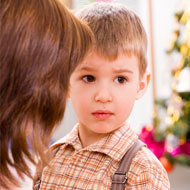Social Development Activities that will Boost Your Preschoolers Confidence
Social development in preschoolers occurs at a fast pace between the years of three and five. This includes developing a sense of individuality, a personality that is separate from the child's immediate social setting - his/her family. Your child will also begin to develop an increasing level of curiosity.
This is what primarily enables your child to explore his/her surroundings and to develop a sense of individuality. Ensure that your child's new found sense of independence is closely monitored and under your advice, as he/she is still vulnerable to all kinds of dangers.
Preschoolers Social Development Activities
Ensure that you accompany your child or at least keep a watch over him/her as he/she explores places around your home or the school. Encourage your child's curiosity but make sure that you provide the right kinds of answers and provide adequate opportunities for further learning. Preschoolers' social development is contingent upon parents' and educators' method of guidance. For instance, your child will start to mimic and imitate the social customs and routines in his/her everyday environment during this period of social development. It is important to guide your child through such activities in a positive manner. Don't give him/her a sense that such participation is a hindrance to your daily routine. One of the most important aspects of the social development of a preschooler is to naturalize his/her participation in a routine. Encourage your child when he/she has learned something new without any help. However, you should also learn to advise your preschooler against imitating or learning negative activities like bullying for instance.
Always remember that your preschoolers social development occurs both within and outside your control. Your child is constantly learning from conversations, attitudes and belief systems at home and at school. It is therefore essential to monitor not only your child but what he/she is exposed to in the immediate environment. There are several socializing activities that you can plan for your preschooler. For instance, encourage role-playing games with other children in your neighborhood. Children love to place themselves in imaginary situations and roles, thereby learning to deal with myriad social scenarios at an early age. You should however, always ask your child to describe these activities to you. This is so that you can monitor his playtime and teach him/her to differentiate negative roles from those that are positive. Assuming neutral roles are more desirable than those that promote violence and domination among others, for instance.


